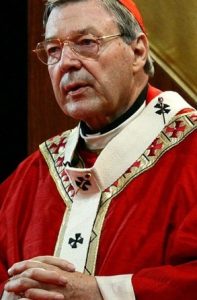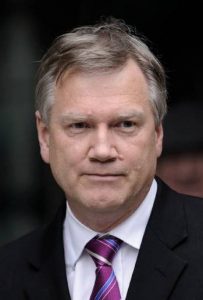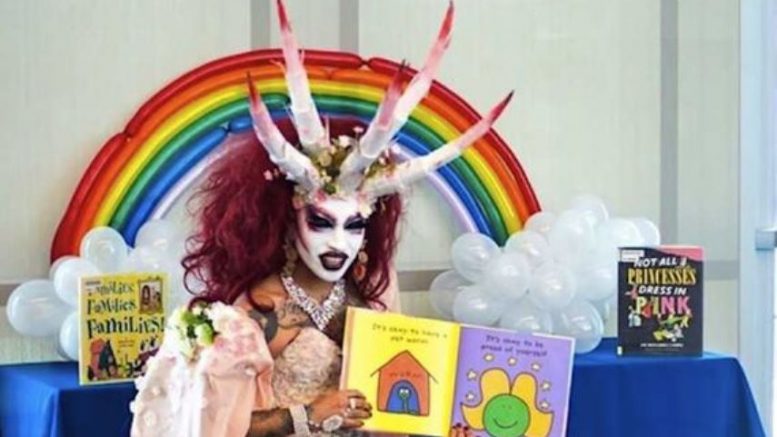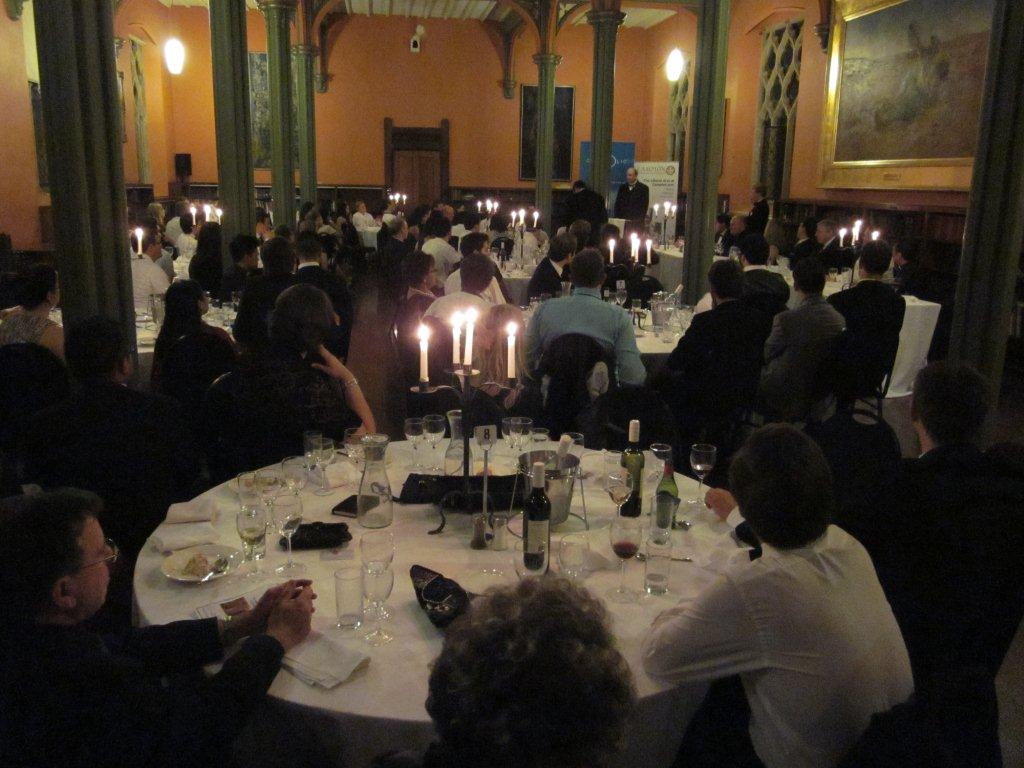
Cardinal George Pell: a vindicated man.
In a case that has garnered international attention and polarised the Australian community, earlier this week the High Court of Australia acquitted Cardinal George Pell of all charges of sexual misconduct after a trial process that saw him incarcerated for 404 days pending the outcome of his appeal. The successful appeal before the country’s highest judicial authority – in which the judges reached a unanimous verdict – was a vindication for a man who consistently maintained his innocence throughout the ordeal, despite the relentless media campaign against him and the faith community he represents.
Cardinal Pell was one of the most influential figures in the Catholic Church, an outspoken public intellectual who was derided by ideological “progressives” for his conservative advocacy on matters related to bioethics and sexual morality. His unrelenting opposition to same-sex “marriage”, abortion and euthanasia made him the bête noir of the Australian Left. However, what is less well known are his efforts to spearhead the first institutional response to the sexual abuse scandal in the country. Indeed, George Weigel, who provided a reference to Cardinal Pell at his Victorian court proceedings, wrote that “the calumnies have become much darker, as the man who designed and implemented the Australian Church’s first vigorous response to the sexual abuse of the young has been charged with being an abuser.”¹

George Weigel, Distinguished Senior Fellow of the Ethics and Public Policy Center.
What were those responses by the Church under George Pell’s leadership? Within the first three months of becoming the Archbishop of Melbourne, in October 1996, Archbishop Pell established what was known as the “Melbourne Response” – the first of its sort in the world and years before clerical abuse became a matter of public knowledge. This involved the creation of an independent body charged with the authority to investigate claims of institutional sexual abuse, as well as to provide an apology, counseling and compensation to victims.² At an average of $46,000³ the compensation payments offered were significantly higher than comparable state scheme such as Queensland (average of $13,000) Tasmania ($30,000) South Australia ($14,100) and Western Australia ($23,000).4 The material presented to the Royal Commission into Institutional Responses to Child Sexual Abuse shows a substantive and good faith attempt to redress these crimes, through an initiative pioneered by then Archbishop Pell.
But one of the more striking aspects of this controversy was the contradictory and dissonant stance of the Cardinal’s most vociferous critics. Their outrage at allegations of child sexual exploitation at the hands of the clerisy violently contrasted with the liberal advocacy of gender ideology elsewhere, such as schools and universities both secular and sectarian. A not-too-recent example of this was the tragic suicide of Gavin Wilson, a campaigner against the grooming of under-aged children through the “drag queen story hour” initiative aimed at minors: his death was portrayed as the result of repressed sexuality instead of the often fatal confusion resulting from the sexualisation of young men and women. It has certainly not gone unnoticed by the usual suspects that opposition to “drag queen story hour” is frequently organised among activist Catholic youth. The cultural and political context of Cardinal Pell’s trial therefore illustrates is that his critics are motivated less by a desire to protect the innocent, rather they seek to morally discredit the Catholic Church because it is the last major institutional obstacle to mass social engineering through aggressive secular (and often virulently anti-Christian) public policy.

The late Gavin Wilson protesting against the grooming of young children in state funded public libraries.
In The Catholic Church and the Cultural Revolution (2016) firebrand Catholic commentator Dr. E Michael Jones noted “the hypocrisy and double standards of the institutions that were acting as judge, jury and executioner in the sex abuse scandals.”5 The book focused on the progress and outcome of the culture war in the 1960s, the major actors involved and methods they utilised. That the attacks on the Church coincided with the campaign to further liberalise sexual norms put the Church and its good-faith defenders at a fundamental disadvantage, but only if those defenders accepted the moral benchmarks of acceptable thought and conduct impose on them by the Commissars of political correctness. Dr. Jones concludes that the Church was defeated precisely because it accepted the moral categories of its detractors, and in a tone that is now familiar, points out that “[t]he irony of course is that the Church was accused of being obsessed with such matters at precisely the time when the obsessions were all on the other side.”6

Dr. E. Michael Jones, Catholic author, commentator and social activist.
The fact that the press constantly made reference to unrelated alleged victims of sexual exploitation during coverage of Cardinal Pell’s appeal – even reporting on allegations that were previously rejected by Australian courts – strongly suggests that he was seen as a representative defendant for all such crimes, whether proven or unproven. In other words, the media’s own conduct showed that the Cardinal was being treated as a sacrificial lamb for the crimes of others, and as a human punching bag for those who simply hate the Church for its ethical worldview. His trial at the hands of the Victorian judicial system was effectively an exorcism designed to expel the demons of modernity’s moral decay. It therefore had little to do with justice but was better characterised as an exercise of institutional vengeance, punishing an ideological foe for the audacity of opposing the social trends that have lead to that very decay within and without his Church.
Many of the past accusations made against Cardinal Pell have been so absurd it is no wonder the press is reluctant to highlight the track record of these prosecutions. In some cases, the accused was found to be literally out of the country at the time of the alleged act. In others, the events at which the alleged crimes took place were proven objectively never to have occurred. In yet others, the alleged victims were themselves later found to be perpetrators of abuse.7 Quadrant magazine published a number of reports concerning the trial and evidence against Cardinal Pell throughout the appeal process, outlining various oddities such as the courts refusal to inspect the scene of the alleged crime or even the garments that the complainant alleges were worn at the time – two things that would cast serious doubt over the likelihood that such a crime could have taken place at all.8

Andrew Bolt, Australian libertarian commentator.
Two critics of the way that the media and the justice system handled the prosecution of Cardinal Pell are worth singling out and quoting at length. The first was from Andrew Bolt, who appeared on Sky News (Australia) and the second was from the Vice Chancellor and President of the Australian Catholic University, Prof. Greg Craven, who was interviewed on the national broadcaster, the ABC. From the outset, Bolt made the point that “I haven’t been a supporter of Cardinal George Pell throughout, what I have been in favour of is looking at the evidence because this was one of the greatest miscarriages of justice in Australian history.” Furthermore:
“A lot of people today should be ashamed of their role in the persecution, the witch-hunting and the gaoling for 404 days of an innocent man. This is not a case of, you know, of legal technicalities won in the end. This is one where the charges were inherently implausible, and yet they were believed, and voices that spoke against this conviction were hounded down. It is a disgrace, and we will have a long accounting about this, well we should. Victoria police, for going through a trawling exercise, looking for complaints against Cardinal Pell, which previous miscarries of justice have said was exactly the kind of process where you do lead to people getting false memories or coming forward with false accusations. The Victorian Court of Appeal, which in a two to one decision threw out Pell’s initial claim for an appeal, they too must be looking at their own conscience as to why they did so. And of course there’s the media, not least the ABC, which spoke as one voice against George Pell, and to this very morning were making false accusations against him. There was a witch-hunt in this country, and we need to look at why we let that happen, how many institutions were part of it, and why so few people spoke up in defence of a man, as I say, who is innocent, who could not have committed the crimes as alleged.”

Prof. Greg Craven, Vice Chancellor and President of the Australian Catholic University.
Prof. Craven’s comments on the ABC were far more devastating. “It’s not a surprising decision. This was a case that had a reasonable doubt a mile wide. It should not have been prosecuted. It should not have resulted in a guilty verdict” he said, adding that “I think the question is why such a case was prosecuted, what damage it did.” As the interview progressed, Prof Craven unleashed on the ABC itself:
Craven: “I have to say I think your organisation the ABC did its very best to be part of the cheer squad that made that [the persecution of Cardinal Pell] happen. […] It wasn’t the case whether you liked George Pell or whether you would like George Pell to be in gaol. I think the truth was that it was a case about whether it [the alleged crime] happened. A large group of ABC and group of Nine journalists did everything they could to put as much pressure, to drown out any possible contraventions, I think worked closely with police to make sure that there were coincidental leaking of information, references to ‘victims’ rather than ‘complainants’. I think that was a shocking aspect of, I was very interested to hear the report just coming in before, you’ve just had a decision seven nil of the High Court, crushing one of the most important cases in recent history, and what the ABC is now doing is trying to talk up redacted bits of the Royal Commission, talk up civil cases that haven’t even been held. It’s extraordinary. […] What has happened today is that the High Court, unanimously, seven nil, said the Victorian justice system got it hopelessly wrong, and restored a person who has been consistently referred to by a variety of media including leading members of the ABC as a convicted paedophile, which he is now not, nor can it be said. That’s the news of the day. It is astonishing that an organisation like the ABC who places so much emphasis on its trust is rapidly now trying to divert attention from that fundamental fact that you got it hopelessly…”
Interviewer: “I’d say management, I’d say management would vigorously reject those accusations, Greg Craven, let’s move on because you’ve had your say about the ABC. We’re not talking about the ABC. It’s not the subject of the interview.”
Craven: “Excuse me, you’re interviewing me, and I’m giving answers…”
Interviewer: “I’d like to move on from this point because I feel like you have had your say on it.”
Former Catholic Rod Dreher was shocked at the cover of an issue of the University of Sydney’s student paper Honi Soit of late 2019, which featured “an image of the cardinal swinging from a gibbet, his body shredded, presumably by the gathered crowd. The image is horrifying. I find no plausible way to interpret the image except as an incitement to lynching.”9 The image was published by students of one of our nation’s most prestigious institutions of higher learning at a time when the Cardinal’s appeal was still pending. Dreher then asks, “But what if he is released? What if his conviction is overturned on appeal? Is this the kind of barbarism that passes for enlightened progressive opinion in Australia?”10 And that question, really does answer itself.

Rod Dreher, conservative author and former Catholic.
The rot we witness in society is certainly not quarantined to the fever swamps of the student radicals and their campus scandal-press. Now that he has been found innocent, Weigel describes the majority decision of the Victorian court which upheld the original guilty verdict as “baffling”, based as it was on the inconsistent testimony of the complainant alone, with no corroborating witnesses, no physical evidence and serious questions about the plausibility of the facts as they were alleged to have happened, while also apparently reversing the onus of proof by effectively requiring the defendant to prove his innocence.11 “The decision also begins the process of rebuilding international confidence in Australia’s criminal justice system, which has been badly damaged by the Pell case—although there is much more remedial work to be done on that front, especially in the State of Victoria, Ground Zero of the Pell witch hunt that raged for years and that culminated in this tawdry affair.”12
Cardinal Pell’s struggle has been with the Sexual Obsession Lobby in its various forms, whether criminal and within his Church, or subversive and outside of it. Yet it is not the Catholic Church that is damaged after this episode in the culture wars; it is the Victorian criminal justice system, its courts and police. Professional journalism in Australia too is withering. Its treatment of an innocent man who has struggled against those forces that lead to the abuse he himself was accused of perpetrating was nothing short of scandalous; its otherwise glowing support of initiatives that contribute to the sexualisation of minors is hypocrisy of the highest order. A great deal of trust and credibility will need to be rebuilt. Whether the progressive establishment is capable of it will depend on its ability to self reflect – unlikely under present circumstances.
— SydneyTrads Editors
Endnotes:
- George Weigel, “Fifty Years of Friendship With Cardinal Pell” First Things (online) (7 May 2017) <firstthings.com> (accessed, 10 April 2020) ¶ 6.
- Royal Commission into Institutional Responses to Child Sexual Abuse, Case Study 16: Melbourne Response, Witness Statement of Cardinal George Pell (Commonwealth of Australia, 7 August 2014) ¶¶ 24 ff.
- Chris Vedelago and Cameron Houston, “Catholic Church Saves $62 Million on Sexual Abuse Claims” The Age (online) (5 December 2015 @ 7:40PM) <www.theage.com.au> (accessed, 10 April 2020) ¶ 11.
- Royal Commission into Institutional Responses to Child Sexual Abuse, Redress and Civil Litigation Report (Commonwealth of Australia, 2015) pp. 226 to 227.
- E Michael Jones, The Catholic Church and the Cultural Revolution John Beaumont (ed.) (Fidelity Press, 2016) p. 60.
- Ibid., p. 34.
- See generally: Dr. Bill Donohue, “The War Against Cardinal Pell” Catholic League for Religious and Civil Rights (online) (20 July 2017) <www.catholicleague.org> (accessed, 10 April 2020).
- See generally: the editorials and occasional feature articles in Quadrant magazine, particularly of 2019 to date. [Update, 13 April 2020: Quadrant magazine (online) has wasted no time; today’s update by email contained no less than four responses to the Pell Case, which we strongly recommend to our readers. These are: Keith Windschuttle, “Two Judges and the Braying Mob”, James Allen, “Rogue Justice, as Bentham Would Put It”, Tony Thomas, “Australia’s ‘Most Trusted’ Smear Machine”, and Tim Blair, “The ABC’s Beclowned Fact Check Unit”.]
- Rod Dreher, “The Cardinal Pell Lynch Mob” The American Conservative (online) (25 March 2019 @ 4:00PM) <www.theamericanconservative.com> (accessed, 10 April 2020) ¶ 3.
- Ibid.
- George Weigel, “Justice, Finally” Catholic World Report (online) (6 April 2020) <www.catholicworldreport.com> (accessed, 10 April 2020) ¶¶ 1, 3.
- Ibid., ¶ 2





Be the first to comment on "Cardinal George Pell vs the Obsession Lobby"